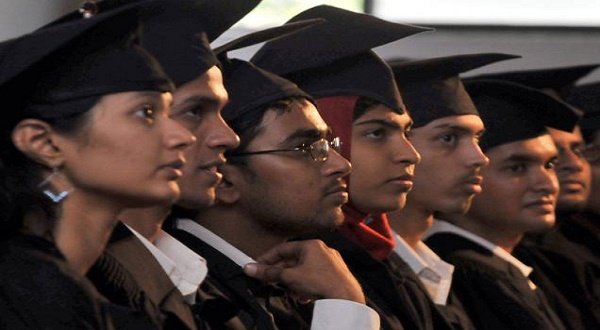The growth story of India will gridlock if the present policies and dispensation in higher education are allowed to continue
PROF IQBAL S. HASNAIN
[dropcap]L[/dropcap]ike his much touted development agenda, Prime Minister Narendra Modi is losing his grip over the education agenda as well.
Higher education both in the University Grants Commission and at the Ministry of Human Resources are run by very mediocre bureaucrats. Important bills on foreign universities and restructuring of University Grants Commission were withdrawn from the Parliament by the present government.
That the development agenda is no longer getting the attention is clear from the number of critical columns in newspapers and the negative coverage by influential talk shows. Even sympathetic secular and mainstream commentators are beginning to turn against the government after the Rashtriya Swayamsevak Sangh and its other affiliates began aggressively pushing their Hindutava agenda, which is distracting national and global narratives of post-UPA story of India’s economic development.
Intellectuals, corporate leaders and journalists who strongly backed Modi during and before the 2014 general elections are blaming the mediocre and spineless bureaucracy for the government’s inability to shine the spotlight on the growth story.
They are urging the prime minister to bring outside experts and park them in his secretariat and in key ministries like Human Resource Development, Science and Technology. Such experts, they think, will have the energy to bring new ideas and have courage to speak their mind.
A case in point is Raghuram Rajan, Governor of Reserve Bank of India, a rank outsider who has the capability and courage to speak his mind, gives the right advice to the Prime Minister and Finance Minister on economic policies.
While delivering Bharat Ram Memorial Lecture in New Delhi on December 12, he suggested that India should focus on not just “Make in India,” but also “Make for India.” The export-led growth model may not work for India at this point of time, even though China and other Asian economies may have hugely benefited from this model.
Rajan also recommended rollout of the goods and services tax (GST) as a “well designed GST bill, by reducing state border taxes, will have the important consequence of creating a truly national market for goods and services, which will be critical for our growth in years to come.”
Not surprisingly, Rajan, who is on leave from University of Chicago as a professor, also emphasized in the same speech that India must invest in “idea-producing institutions – research departments of official bodies, think tanks, as well as universities.”
One educationist who has ideas and courage to lift higher education from the pit is Professor Bhanu Pratap Mehta of Center of Policy Research. He has right credentials and background to re-organize higher education, which will empower 60 percent youth of India and will provide skill manpower to fuel manufacturing and other sectors.
The growth story of India will gridlock if present dispensation in higher education is allowed to continue. Mehta has rightly suggested in his recent opinion in The Indian Express on December 13 that every single proposal under discussion, from mad ideas like common act for all central universities to centralized recruitment of faculty and admission, will destroy public higher education in India.
The purpose of central universities is to serve special needs, apart from serving as institutes of national importance attracting faculty and students from all over country. The Legislative Council of India passed acts in 1857 to establish universities at Calcutta, Bombay and Madras. Later University of Punjab (1882), Allahabad (1887), Banaras (1916), Patna (1917), Aligarh (1920) and Delhi (1922) were established.
When education was transferred as a subject under the provincial government, all universities except Banaras Hindu University and Aligarh Muslim University were transferred to provincial governments. After independence the Constituent Assembly decided to list education under union, state and concurrent.
Central universities should be allowed to grow without imposing Common Act, which curtail their unique character as centers of excellence.


